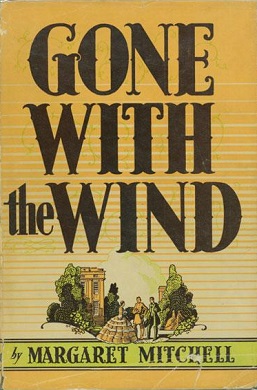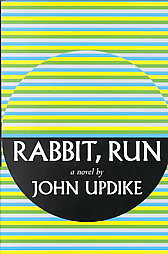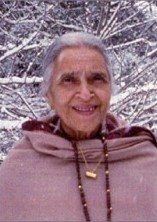
Gone with the Wind is a novel by American writer Margaret Mitchell, first published in 1936. The story is set in Clayton County and Atlanta, both in Georgia, during the American Civil War and Reconstruction Era. It depicts the struggles of young Scarlett O'Hara, the spoiled daughter of a well-to-do plantation owner, who must use every means at her disposal to claw her way out of poverty following Sherman's destructive "March to the Sea." This historical novel features a coming-of-age story, with the title taken from the poem "Non Sum Qualis eram Bonae Sub Regno Cynarae", written by Ernest Dowson.
Kathleen Wendy Herald Peyton, who wrote primarily as K. M. Peyton, was a British author of fiction for children and young adults in the 1960s and 1970s.

Shirley Mae Jones is an American actress and singer. In her six decades in show business, she has starred as wholesome characters in a number of musical films, such as Oklahoma! (1955), Carousel (1956), and The Music Man (1962). She won the Academy Award for Best Supporting Actress for playing a vengeful prostitute in Elmer Gantry (1960). She played the lead role of Shirley Partridge, the widowed mother of five children, in the musical situation-comedy television series The Partridge Family (1970–1974), which co-starred her real-life stepson, David Cassidy, son of Jack Cassidy.
An autobiographical comic is an autobiography in the form of comic books or comic strips. The form first became popular in the underground comix movement and has since become more widespread. It is currently most popular in Canadian, American and French comics; all artists listed below are from the U.S. unless otherwise specified.
Mrs Dale's Diary was the first significant BBC radio serial drama. It was first broadcast on 5 January 1948 on the BBC Light Programme, later BBC Radio 2; it ran until 25 April 1969. A new episode was broadcast each weekday afternoon, with a repeat the following morning. A few days after the final episode, a new serial drama, Waggoners' Walk, took over the time slot.

Ada Cambridge, later known as Ada Cross, was an English-born Australian writer. She wrote more than 25 works of fiction, three volumes of poetry and two autobiographical works. Many of her novels were serialised in Australian newspapers but never published in book form. While she was known to friends and family by her married name, Ada Cross, her newspaper readers knew her as A.C. She later reverted to her maiden name, Ada Cambridge, and that is how she is known today.

Anthony Walter Patrick Hamilton was an English playwright and novelist. He was well regarded by Graham Greene and J. B. Priestley, and study of his novels has been revived because of their distinctive style, deploying a Dickensian narrative voice to convey aspects of inter-war London street culture. They display a strong sympathy for the poor, as well as an acerbic black humour. Doris Lessing wrote in The Times in 1968: "Hamilton was a marvellous novelist who's grossly neglected".

The Mirror Crack'd is a 1980 British mystery film directed by Guy Hamilton from a screenplay by Jonathan Hales and Barry Sandler, based on Agatha Christie's Miss Marple novel The Mirror Crack'd from Side to Side (1962). It stars Angela Lansbury, Geraldine Chaplin, Tony Curtis, Edward Fox, Rock Hudson, Kim Novak, and Elizabeth Taylor. Scenes were filmed at Twickenham Film Studios in Twickenham, London, and on location in Kent.

Mary Louisa Molesworth, néeStewart was an English writer of children's stories who wrote for children under the name of Mrs Molesworth. Her first novels, for adult readers, Lover and Husband (1869) to Cicely (1874), appeared under the pseudonym of Ennis Graham. Her name occasionally appears in print as M. L. S. Molesworth.

Rabbit, Run is a 1960 novel by John Updike. The novel depicts three months in the life of a 26-year-old former high school basketball player named Harry "Rabbit" Angstrom, who is trapped in a loveless marriage and a boring sales job, and attempts to escape the constraints of his life. It spawned several sequels, including Rabbit Redux, Rabbit is Rich and Rabbit at Rest, as well as a related 2001 novella, Rabbit Remembered. In these novels, Updike takes a comical and retrospective look at the relentless questing life of Rabbit against the background of the major events of the latter half of the 20th century.

Rosie Dolly and Jenny Dolly, known professionally as The Dolly Sisters, were Hungarian-American identical twin dancers, singers and actresses, popular in vaudeville and theatre during the 1910s and 1920s. Both sisters also appeared in two silent films.

Gaura Pant, better known as Shivani, was a Hindi writer of the 20th century and a pioneer in writing Indian women-centric fiction. She was awarded the Padma Shri for her contribution to Hindi literature in 1982.

Bitter Harvest is a 1963 British kitchen sink drama film directed by Peter Graham Scott and starring Janet Munro and John Stride.

Mr. Stimpson and Mr. Gorse is a 1953 novel by Patrick Hamilton, the second in the Gorse Trilogy.
Berlie Doherty is an English novelist, poet, playwright and screenwriter. She is best known for children's books, for which she has twice won the Carnegie Medal. She has also written novels for adults, plays for theatre and radio, television series and libretti for children's opera.

The Midnight Bell is a gothic novel by Francis Lathom. It was first published anonymously in 1798 and has, on occasion, been wrongly attributed to George Walker. It was one of the seven "horrid novels" lampooned by Jane Austen in her novel Northanger Abbey.
Dear creature! How much I am obliged to you; and when you have finished Udolpho, we will read the Italian together; and I have made out a list of ten or twelve more of the same kind for you.
Have you, indeed! How glad I am! What are they all?
I will read you their names directly; here they are, in my pocketbook. Castle of Wolfenbach, Clermont, Mysterious Warnings, Necromancer of the Black Forest, Midnight Bell, Orphan of the Rhine, and Horrid Mysteries. Those will last us some time.
Yes, pretty well; but are they all horrid, are you sure they are all horrid?
—Northanger Abbey, ch. 6

Christmas Cupid is a television film starring Christina Milian, Ashley Benson and Chad Michael Murray and directed by Gil Junger. It was premiered on ABC Family on December 12, 2010, as part of their 25 Days of Christmas programming block. It was filmed under the name Ex-Mas Carol.

Jenny Han is an American author, screenwriter, executive producer, and showrunner. She is best known for writing the The Summer I Turned Pretty trilogy, which she adapted into a TV series for Prime Video. She also wrote the To All the Boys trilogy which was adapted into a Netflix film series.

Twenty Thousand Streets Under the Sky is a 2005 BBC television serial depicting the intersecting lives of three working-class Londoners in the 1920s. The series is based on the trilogy '’20,000 Streets Under the Sky'’ by British author Patrick Hamilton. It stars Sally Hawkins, Zoë Tapper and Bryan Dick. The three-part drama was shown on BBC Four, accompanied by the documentary Words, Whisky and Women, and was also released on DVD, HD DVD and Blu-ray. The series was released in the United States on BBC America on 11 February 2006.

She Fell Among Thieves is a 1935 adventure novel by the English author Dornford Yates, the fifth in his 'Chandos' thriller series. It was serialised in Woman's Journal. The title comes from a phrase in the Parable of the Good Samaritan.
















